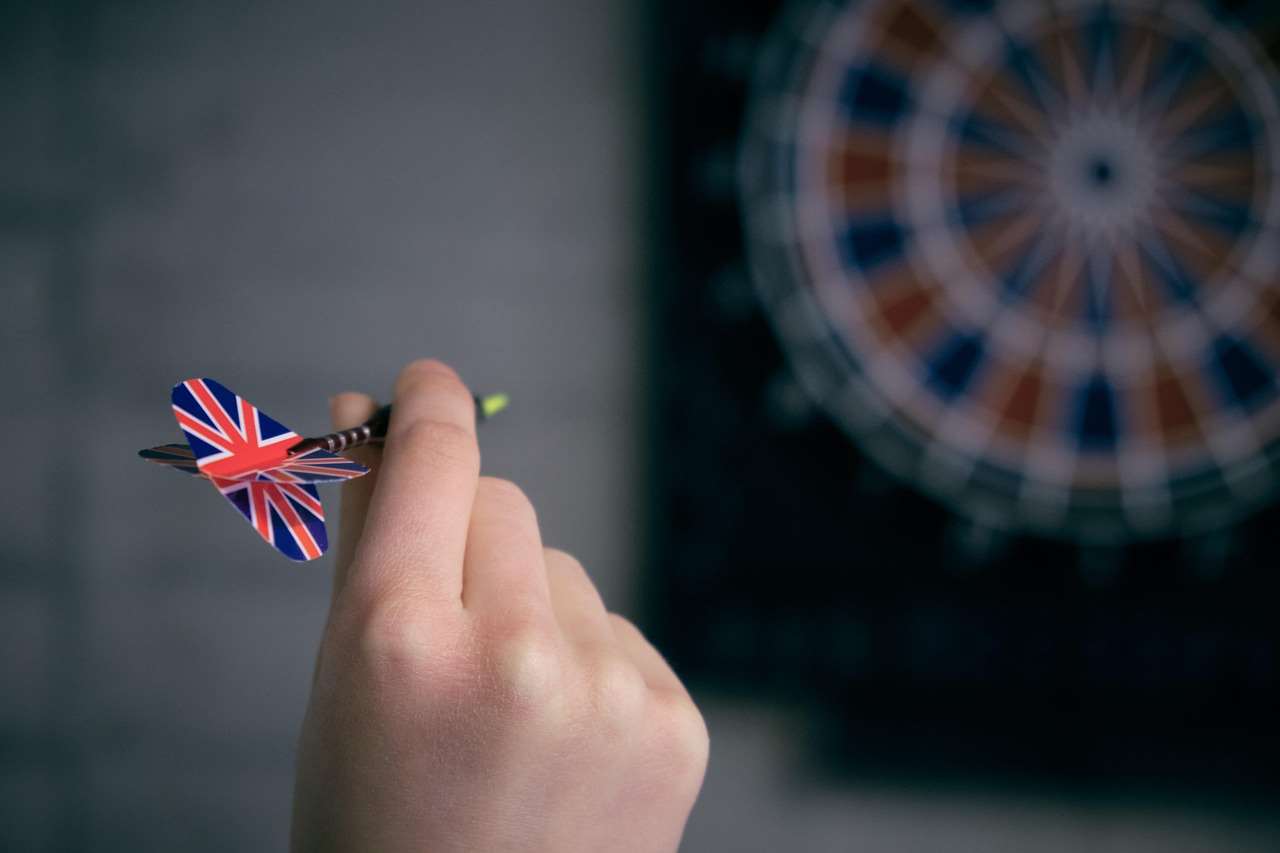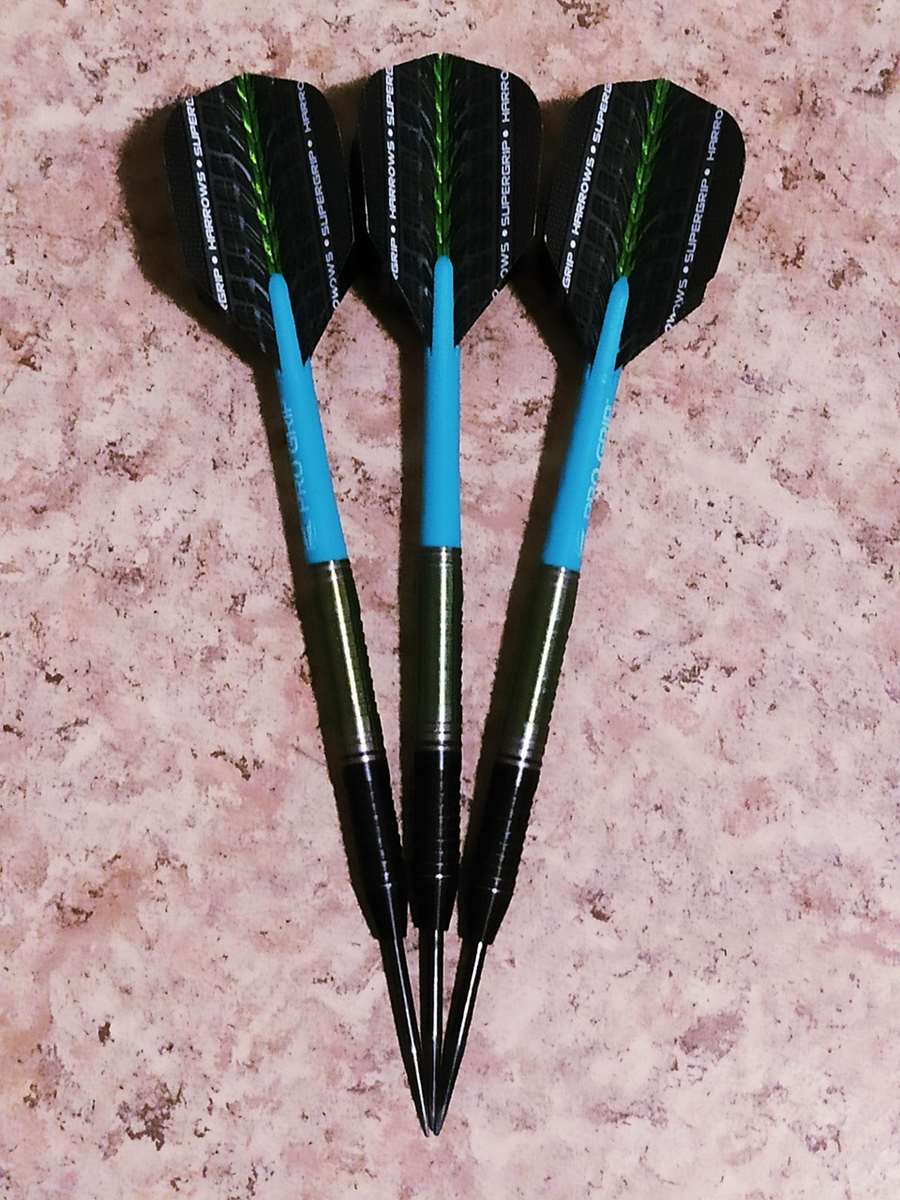The story of televised darts history beginnings is one of rapid popularization, transforming a pub game into a national obsession and a professional sport. This article delves into the pioneering years, covering the key tournaments, personalities, and broadcasting innovations that shaped the early landscape of televised darts.
⚠️ Still Using Pen & Paper (or a Chalkboard)?! ⚠️
Step into the future! The Dart Counter App handles all the scoring, suggests checkouts, and tracks your stats automatically. It's easier than you think!
Try the Smart Dart Counter App FREE!Ready for an upgrade? Click above!
The Spark: Early Broadcasts and Formative Years
Before the roaring crowds and the multi-million-pound prize funds, televised darts was a tentative experiment. The earliest glimpses of the sport on television were often brief segments within broader sports programs, showcasing local competitions or exhibitions. These initial broadcasts, though rudimentary in production value, planted the seed for what was to come.
One of the crucial factors driving the early development of **televised darts** was the involvement of entrepreneurs and promoters who recognized its potential appeal to a wider audience. They understood that the game’s simple rules, dramatic tension, and relatable characters could translate well to the small screen.

The News of the World Darts Championship: A Launchpad
The **News of the World Darts Championship**, while not exclusively a televised event in its early years, played a pivotal role in raising the profile of the game. Founded in 1927, it became a prestigious amateur competition, attracting a large following and providing a platform for emerging talents. Increased media coverage, including brief television highlights, exposed the sport to a broader public and fuelled its growing popularity.
It became clear that a simpler version of darts rules could appeal to a broad audience. If you are after simpler rules of darts for beginners, check this out:adapting darts rules for beginners.
Key Elements of the News of the World Darts Championship’s Impact:
- Increased media attention: The championship generated newspaper coverage and brief television highlights, creating awareness and interest.
- Emergence of star players: The tournament showcased the skills of top players, turning them into recognizable figures.
- Foundation for future professionalization: The News of the World Darts Championship demonstrated the potential for darts to be a commercially viable sport.
Independent Television (ITV) and the Darts Boom
The real breakthrough for televised darts history beginnings came with the arrival of Independent Television (ITV). In the 1970s, ITV recognized the potential of darts as a cheap and cheerful filler for their schedules, particularly during off-peak hours. This marked the beginning of regular and dedicated darts coverage, transforming the sport’s fortunes.
ITV’s coverage was characterized by its straightforward presentation, focusing on the action and the personalities of the players. Commentators like Sid Waddell brought their infectious enthusiasm and witty commentary to the broadcasts, captivating viewers and turning darts matches into must-see entertainment.

The **indoor league** (often hosted by Fred Trueman) also proved to be a massive success, taking darts out of its smoky backroom image and putting it front and center on primetime TV. The league involved teams from different professions competing against each other and created an atmosphere of camaraderie.
The increase in coverage enabled players such as Eric Bristow to build a real fan base. For those looking to improve their fundamental game, start with understanding Basic Darts Fundamentals for Beginners.
Factors Contributing to ITV’s Success with Darts:
- Regular coverage: ITV provided consistent airtime for darts, building a loyal viewership.
- Engaging commentary: Sid Waddell and other commentators made the sport accessible and entertaining.
- Focus on personalities: ITV highlighted the characters and rivalries of the players, adding drama and excitement.
The British Darts Organisation (BDO) and Professionalization
The formation of the British Darts Organisation (BDO) in 1973 was another crucial step in the evolution of televised darts history beginnings. The BDO provided a governing body for the sport, establishing rules, organizing tournaments, and promoting darts at all levels.
The BDO World Darts Championship, first held in 1978, quickly became the premier event in the darts calendar. Televised by the BBC, the championship provided a platform for the world’s best players to compete for the coveted title and further enhanced the sport’s popularity.

The BDO helped solidify the status of darts as a professional sport, attracting sponsorship, increasing prize money, and creating opportunities for players to earn a living from their skills.
The Rise of Darts Superstars
The increased television coverage and the professionalization of the sport led to the emergence of darts superstars. Players like Eric Bristow, John Lowe, and Jocky Wilson became household names, captivating audiences with their skill, charisma, and fierce rivalries. These players helped to elevate the sport’s profile and attract new fans.
Eric Bristow, in particular, became a dominant force in the darts world, winning multiple world championships and becoming a popular figure both on and off the oche. His success and personality made him a role model for aspiring players and helped to cement darts’ place in the British sporting landscape.
These superstar players were not just skilled dart players, but entertainers as well. They knew how to work the crowd, play up to the cameras, and create a sense of drama and excitement. This made darts matches more than just sporting contests; they were theatrical performances.

The BBC and the BDO World Darts Championship
The BBC’s coverage of the BDO World Darts Championship played a significant role in its success and longevity. The BBC’s reputation for quality broadcasting and its commitment to sports coverage helped to legitimize darts and attract a wider audience.
The BBC’s presentation of the championship was characterized by its professionalism, its focus on the sporting aspects of the game, and its respect for the players. Commentators like David Croft provided knowledgeable and insightful commentary, enhancing the viewing experience.
For many years, the BBC’s coverage of the BDO World Darts Championship was a fixture of the British sporting calendar, attracting millions of viewers and cementing darts’ place as a popular and mainstream sport.
The Split and the Formation of the PDC
Despite its success, the world of televised darts was not without its challenges. In the early 1990s, a dispute arose between the BDO and a group of leading players over issues such as prize money, tournament structure, and player representation. This led to a split in the sport, with the breakaway players forming the World Darts Council (WDC), later renamed the Professional Darts Corporation (PDC).
The formation of the PDC marked a significant turning point in the history of televised darts. The PDC adopted a more commercial approach, focusing on attracting sponsorship, increasing prize money, and improving the presentation of the sport. This led to a period of rapid growth and increased popularity for PDC darts.

The split between the BDO and the PDC created two rival organizations, each with its own set of tournaments, players, and television deals. This led to increased competition and innovation, ultimately benefiting the sport as a whole.
The Legacy of Early Televised Darts
The televised darts history beginnings laid the foundation for the modern sport. The early broadcasts, the rise of superstar players, and the formation of the BDO all contributed to the growth and popularity of darts. While the split with the PDC created two different paths for the sport, both owe their initial successes to those early years of exposure.
The simple rules, dramatic tension, and relatable characters that made darts appealing to television audiences in the 1970s and 1980s are still central to its appeal today. The legacy of the early days of televised darts can be seen in the packed arenas, the multi-million-pound prize funds, and the global popularity of the sport.
Conclusion: From Pub Game to Global Phenomenon
From humble beginnings as a pub game to its current status as a global phenomenon, the history of televised darts is a testament to the sport’s enduring appeal and the power of television to transform its fortunes. The early broadcasts on ITV and the BBC, the rise of superstar players like Eric Bristow, and the formation of the BDO laid the foundation for the modern sport. Explore more about how you can get started with Adapting dart game rules for children and share the fun of darts with the whole family. Now, grab some darts and aim for your own bullseye!